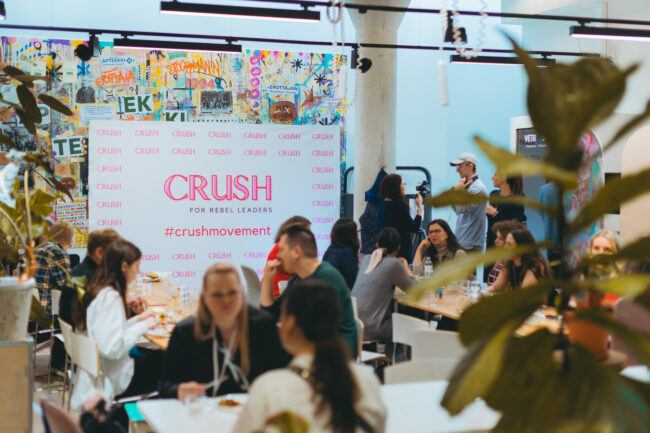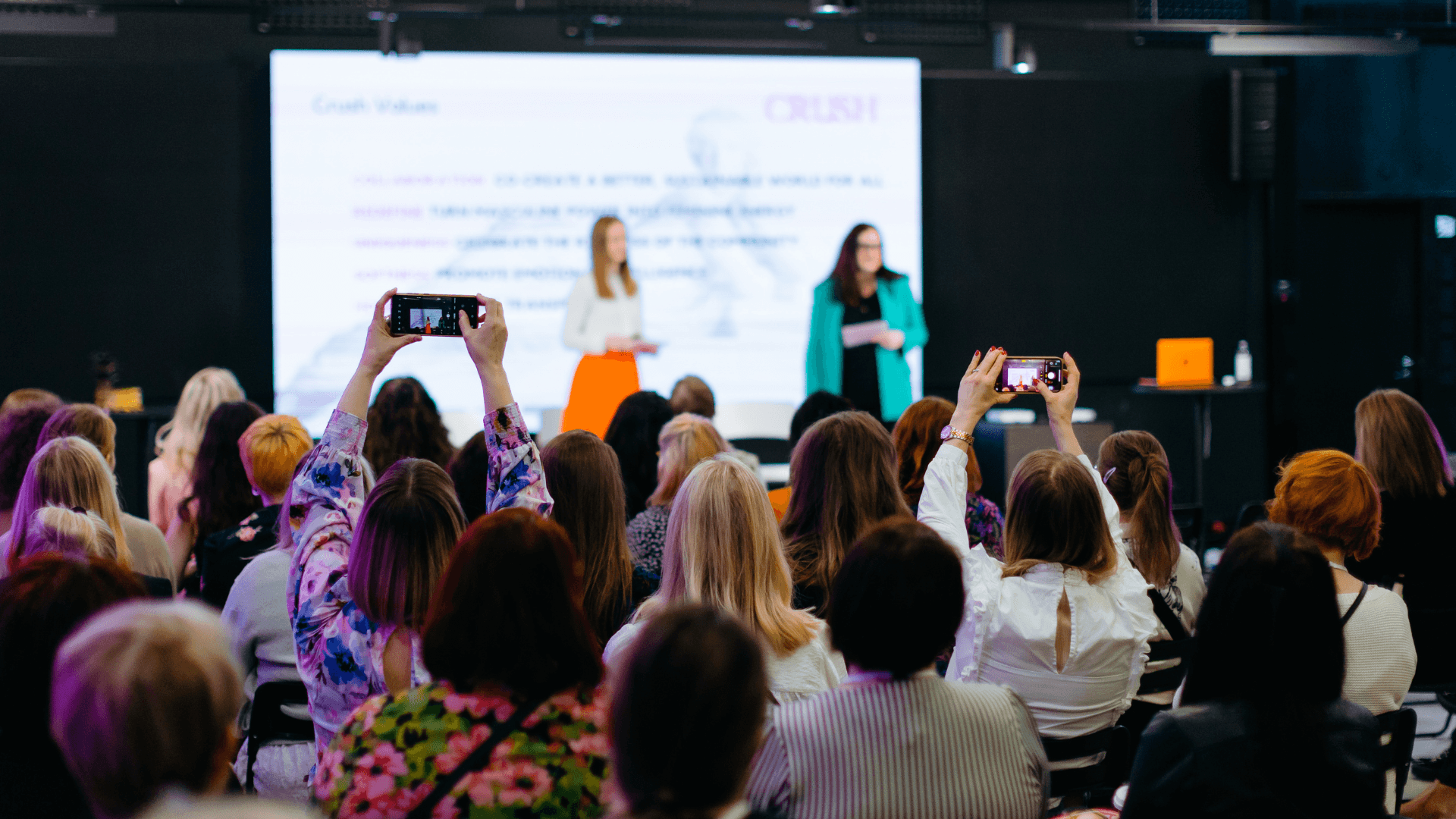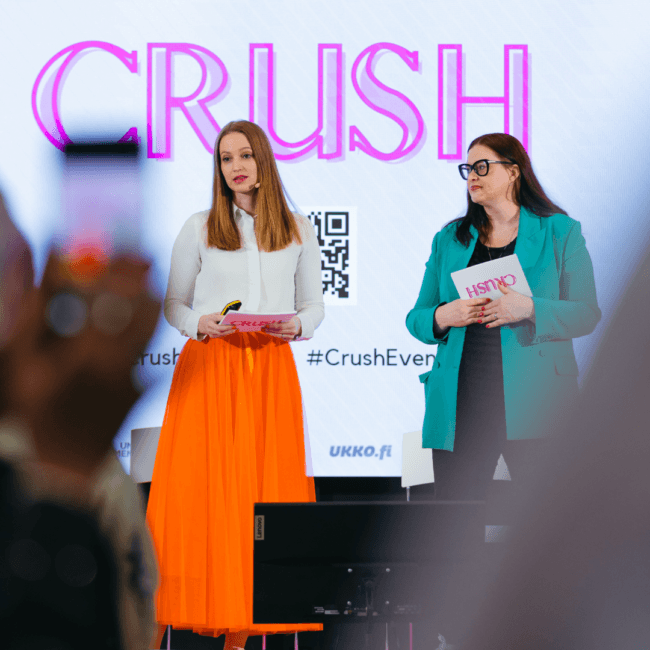You can say f$&k, just don’t say the other f-word.
We are a country full of smart educated women, who have been able to change laws and run the country, but we still live in a reality where the biggest curse word is the f-word.

WTF – Welcome to Finland
Welcome to Finland, where women got the right to vote in 1909. A year later, 19 women elected to the Finnish parliament were the first female parliamentarians in the world. We got our first female president in 2000, and our first female prime minister in 2003. We got worldwide recognition for our women-run parliament during Covid with 47% of members being women, led by prime minister Sanna Marin. The education level is high; in 2020 there were 16.1% more women with a higher education degree than men. Our parental leave policies are top-notch. We have this societal and political history of equality and Finland is the poster child of women’s rights, so do we still need to even talk about feminism and gender equality?The misconceptions of what feminism is or what feminists do are so strong, that even smart women who show in their daily actions that they support the agenda, shy away from being called a feminist. Here you can be a savior, a financial success, highly educated, a boss, a politician, or a woman, but don’t be a feminist fighting for equal rights.It takes a strong, self-confident person to say they are a feminist in Finland.
“Talking about feminism is so over.”
“All women are already treated equally in Finland.”
“I have never experienced misogyny, so I don’t think it exists.”
“It’s women’s fault if they are not just applying for the positions.”
“Feminism makes me angry, why do women want to turn against men?”
“The best person should win, it should not have anything to do with gender.”
“Our main focus should be getting women into leadership positions and making money.”
“I’m treated well as the only woman in our team, I laugh at the sexist jokes just like men, and I fit in.”
“Things are good here. We should focus on helping women in developing countries, let’s collect funds.”
“I never had difficulties getting funding/raise/jobs because I am a woman, I don’t think gender has anything to do with it.”
It might be super appealing to nod in agreement with some of these statements. Both you and I have probably said some of these at some point. Things are good, so why bother complaining about the “same old” anymore, we are not our grandmothers. After all, we waited to be at the same table with men for so long, now when we are here, let’s not ruin it with some feminist crap.Stop it. We are far from being done.
There is too much to unpack in the above rhetorics of the anti-feminism in this one post, but let’s start with a few.- Feminism is about equal human rights, it has nothing to do with being “against men.”
- Stereotypical gender roles of men being strong providers whom women should obey have led to toxic masculinity, misogyny, sexism, and also to the marginalization of women and queer individuals.
- Even if you are a woman, you do not represent all women, and your subjective experience of discrimination or the lack thereof does not reflect the experience of all women.
- Since feminism is about equal rights, it is also linked closely to fighting any other type of discrimination.

What is feminism about anyways?
1. Human rights
Fighting for equal human rights is about everyone, and we should be moving away from binary gender thinking anyways. We should be working towards equal rights for all genders, gender non-conforming people, trans people – everyone. Feminism isn’t striving to build a matriarchy and trying to flip the status quo for a women-dominant society where women hold all of the positions of power. Since it’s more about dismantling patriarchy and against any oppression, it’s also about helping men. It’s fighting against toxic masculinity, not against men.2. Gender roles
If it is about human rights and equality, why call it feminism? Because it is still rooted in masculinity and femininity, and gender roles. Feminism is crushing the old male gender role models that don’t feel comfortable for many men anyway. In a way, it is also liberating men to be feminine – as much as it is liberating women to be masculine. Hear me out on what I mean by this. Also men experience harassment when they are not behaving like the (toxic) male gender role assumption, and if they are feminine and woman-like. (“You throw like a girl!”) Honestly, we all have feminine and masculine traits, especially depending on the situation or context. We are complex human beings with feelings, opinions, and thoughts, not the textbook version of a human specimen. We should stop the misconception that male is the superior gender, and masculine traits are superior. And we definitely should stop referring that feminine traits are inferior.Sadly, there are plenty of also women who are oppressing women, and who support misogyny and toxic masculinity. Some do it on purpose, some do it unconsciously because they have lived in a patriarchal society for so long, they don’t even see anything wrong with it, that’s just how things are.Being an awesome person does not have anything to do with your gender. We can all be awesome.
3. Not all men. Not all women.
We hear often the “not all men” explanation, but the “not all women” is pretty important too.I think this is especially important to remember in places like Finland, where society is very homogeneous and there is already a lack of diversity. It is easy to surround yourself with people who belong to the same socio-economical group as you, who think like you, and whose subjective life experiences have been very similar to yours. This also means that when we have had wins for equality, you might be celebrating, but someone else who is not like you, can not celebrate just yet, because their rights are not the same as yours. For example, trans women’s rights and experiences can be very different from yours. Some of this can be seen as unconscious bias that we don’t even realize we have, but some of it is just a lack of empathy and lack of inclusivity.Your subjective experience as a woman does not represent all women.
4. You are more than just your gender
We simultaneously belong to multiple social categories such as race, gender, socioeconomic status, and sexual orientation. And when we discuss feminism or human rights, we need to look at this intersectionally, and understand that we can’t just think “all women”, but we need to look at people through all of these different perspectives. Your experience as a white Nordic middle- or upper-class heteronormative woman with a higher education degree can be very different than someone who is of a different race, socioeconomic status, and sexual orientation, even though you both are women.Topic of inclusion also takes us to two very touchy subjects: white saviors and white feminism. White feminism is something we need to address more, and I admit that I have made many mistakes, but I am learning. White feminism is very close to today’s girl boss and mompreneur movement. It focuses more on succeeding in the man’s world (“girls can code too”) and getting up on the corporate ladder, getting your startup financed, and making money. It does not work towards changing the patriarchal systems that oppress women, but it focuses on succeeding in the capitalist and imperialistic world. Often, white feminists’ close cousins are the white saviors – privileged white folks focusing on their own financial success and then believing they are here to rescue others. Instead, we need to change the world so that marginalized people don’t need rescuing. I have been mentoring, consulting, and hiring mainly entrepreneurs for over 15 years (mainly women), and one of my missions is to help people to build their careers and businesses. Both Anna and I have our own communities supporting entrepreneurs.We need to include all.
Both Anna and I, the founders of Crush Movement, believe that increasing women’s and non-binary individuals’ entrepreneurship is one of the most important ways to sustain national economic development. A lot of this sounds very much like white feminism. And that’s why we wanted to create Crush. To learn more, to educate (us too!) more, to support more. To take concrete action, not just “inspire”. We need to learn more about how we can change the structures of oppression, and how we have to take an active approach to dismantle the patriarchy. It is not enough to have a goal that “some women succeed in the man’s world”, feminism needs to be more genderfluid, more about social sustainability and responsibility, and more focused on human rights than just economics. It means that we need to have a lot of very uncomfortable conversations that will lead to making changes. It means we need to be open to learning more. But above all, it means it requires we need to be willing to talk about feminism in a transparent way and stop mislabeling it and giving up on progress by thinking it doesn’t matter anymore. Do you agree? Do you disagree? Pictures from Crush Event in Helsinki, by Kristian Presnal. Follow Crush Movement and join us for Crush Event on May 8, 2024 in Helsinki, Finland.Future is not female, it’s equal.


